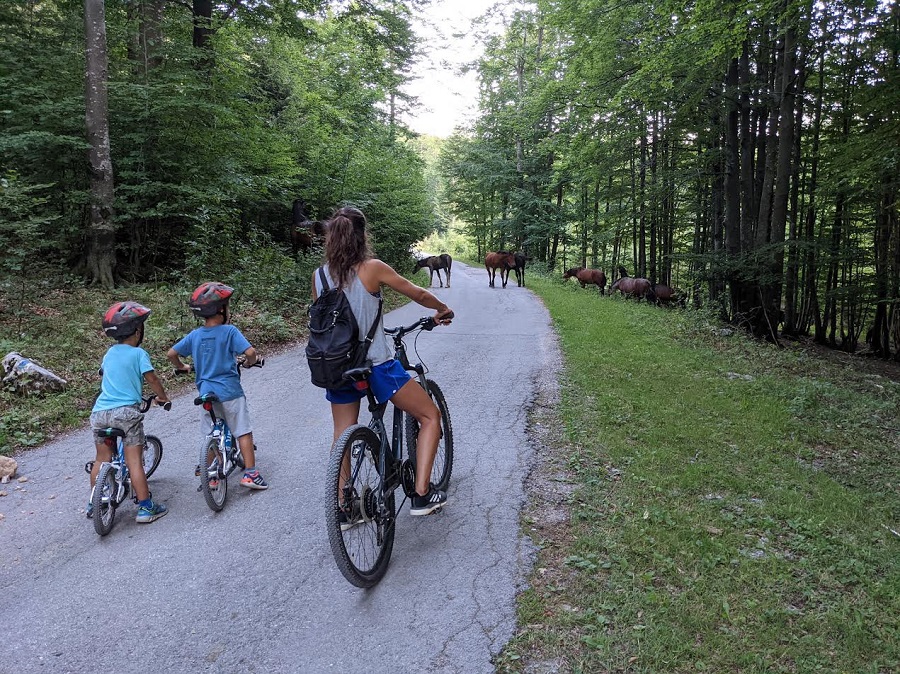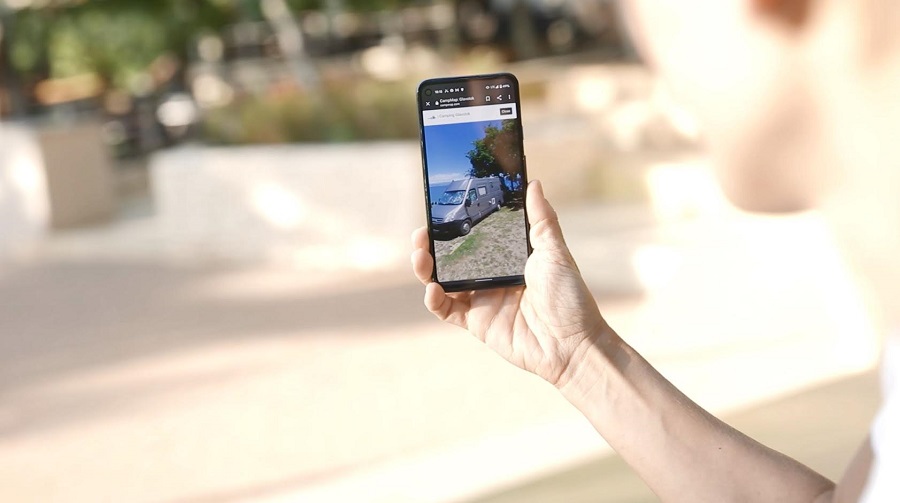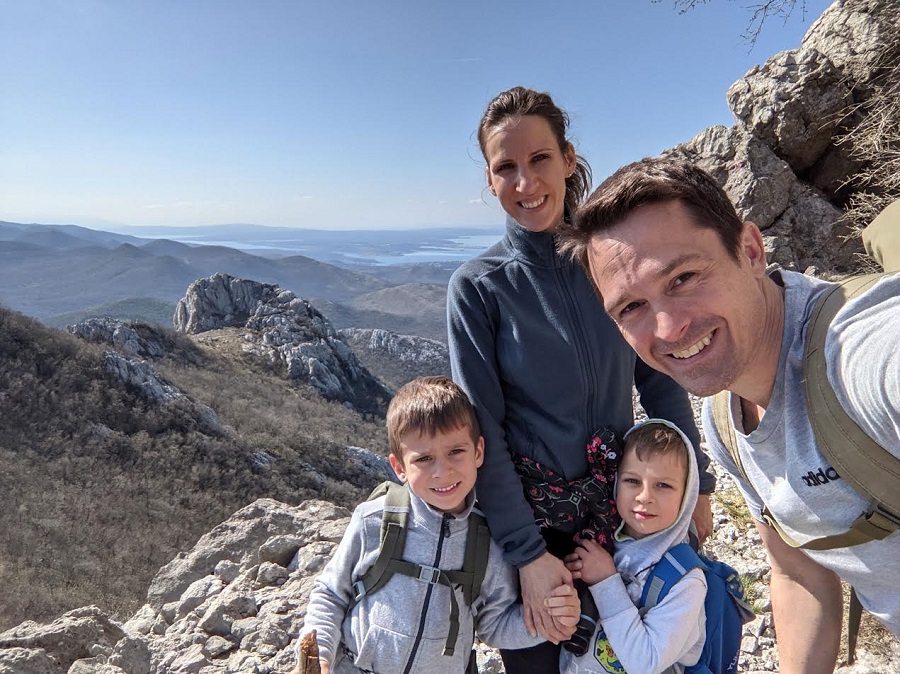Montenegro Digital Nomad Visa in Early 2022: Jan de Jong
October 7, 2021 - Regional collaboration on show, as Jan de Jong annnounces the imminent Montenegro Digital Nomad Visa.
In the words of Split-based Dutch entrepreneur, Jan de Jong, whose efforts to promote digital nomad tourism in Croatia have now officially gone regional, as can be seen from his latest post on LinkedIn:
BREAKING - #Montenegro will follow into Croatia's footsteps as it plans to introduce a Digital Nomad Visa by beginning of 2022
I would like to thank Minister Tamara Srzentić MS MBA & State Secretary Marina Banovic - from the Ministry of Public Administration, Digital Society and Media in Montenegro - for supporting legislative changes, turning Montenegro into a digital nomad welcoming country.
It's amazing to see how you recognize the opportunity of opening your borders to #DigitalNomads. Thank you for your support to make this a reality.
I strongly believe that the entire Adriatic region can benefit from becoming a hotspot for remote work professionals - and this region has all ingredients to make that happen.
It's an honor and true pleasure to be part of this process. Step by step, we are moving forward to a more sustainable region.
Milovan Novakovic MRICS - thank you for all your efforts and facilitating this meeting.
Montenegro - I applaud you for your progress
Regards from Podgorica,
Jan
Follow me on #LinkedIn to never miss an update on this exciting new journey
The announcement follows months of discussions with de Jong and his Montenegrin counterparts, and it is another concrete example of the cross border collaboration that is strengthening the remote work opportunity in the region.
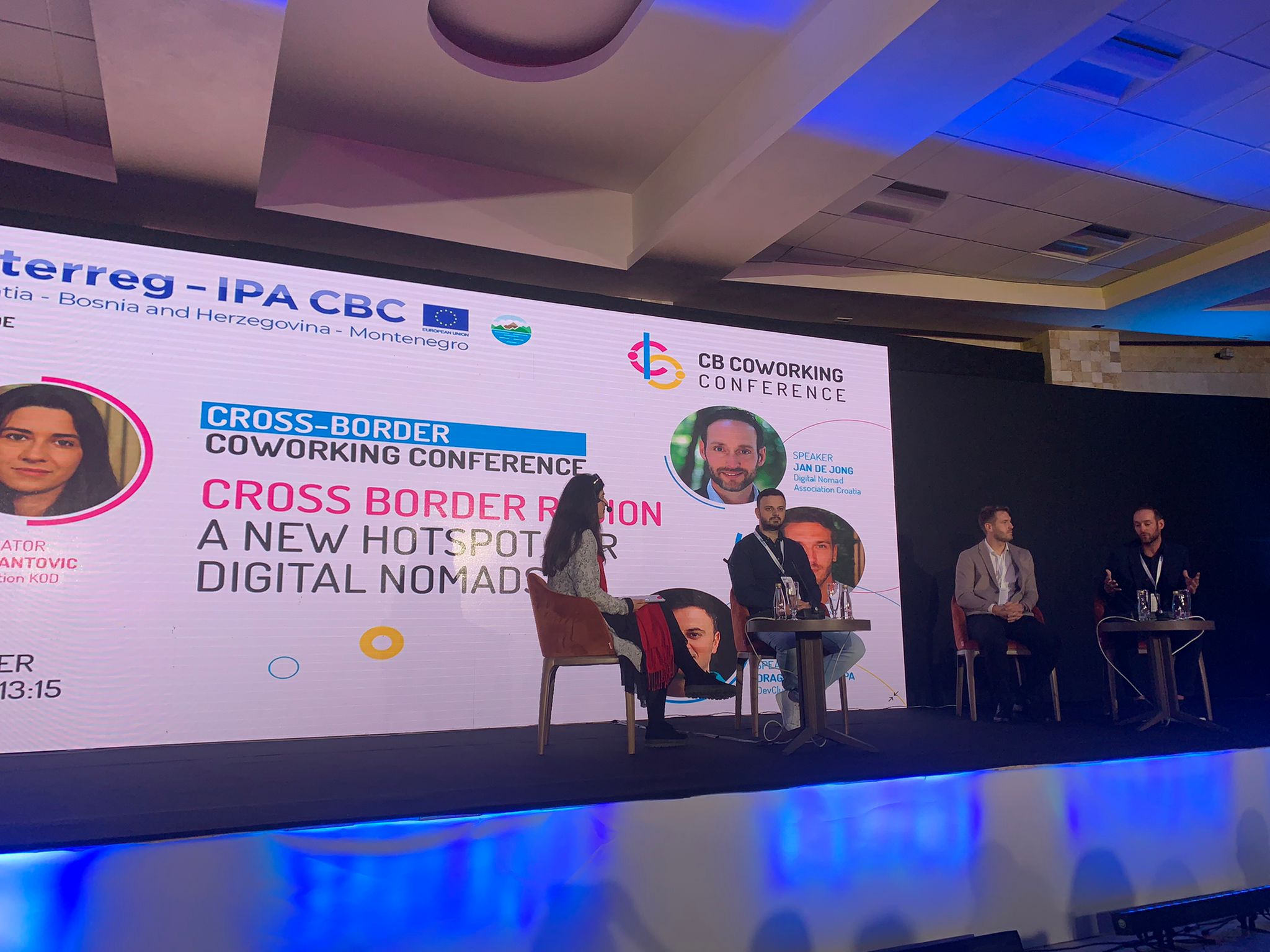
The LinkedIn announcement was accompanied with a photo of the key stakeholders on this initiative - from left to right in the lead photo above:
Milovan Novaković who contacted me last year, for me to help him push this in Montenegro,. Minister Tamara Srzentić, and State Secretary Marina Banovic. Both are from the Ministry of Public Administration, Digital Society and Media in Montenegro.
De Jong is currently in Montenegro, having just taken part in the two-day Cross Border Coworking Conference in Budva. You can read more about the event in TCN's coverage of the first day - Croatian Digital Nomad Energy Crosses Border at Budva CBCC 2021. He spoke to TCN about the current momentum:
It's great to see how countries like B&H and Montenegro are following closely what is happening in Croatia - which has demonstrated true leadership by being among first countries in the world to welcome digital nomads.
What is even more fascinating to see is how Croatia private sector is leaning in on this opportunity.
This Cross-Border Co-working Conference was the perfect platform to share experiences with the goal to turn the entire region into a hotspot for remote work professionals.
The feedback we got from digital nomads like Kate, Steve and Dean - about the attractiveness of this region for digital nomads was more than pleasant and only confirms that this region has all ingredients to become a top destination for digital nomads.
For the latest news and features on digital nomads in Croatia, follow the dedicated TCN section.
Police Form Task Force Over Videos of Violence Against Migrants
ZAGREB, 7 Oct 2021 - The head of the border administration, Zoran Ničeno, said on Wednesday that the Police Directorate had formed a task force that would go into the field after the release of videos showing masked persons hitting migrants and pushing them back from Croatia to Bosnia and Herzegovina.
Earlier in the day, RTL television showed videos of men wearing ski masks pushing back migrants from Croatia across a backwater of the Korana river, hitting them with batons such as those used by riot police. Some of the men also wore vests like those of riot police.
RTL said the footage was from June and that it was taken during an eight-month journalistic investigation in which an RTL crew took part with colleagues from Lighthouse Reports, an investigative journalistic network based in the Netherlands, from the Swiss SRF Rundschau, the German ARD, ARD Monitor, the French Liberation, the Dutch Pointer, the Croatian Novosti, and the German Der Spiegel.
Ničeno told RTL the Police Directorate saw part of the video for the first time earlier in the day and the whole report later on TV.
"We saw that the material is impressive and the police director decided to form a task force that will go to that supposed terrain tomorrow. Given that these are journalists' claims, today we called the Cetingrad police commissioner and we haven't managed to determine the location of the event," Ničeno said.
He said blows or beatings were not part of regular police procedure and that there was no command or order to push back migrants and beat them. "In order to establish all the facts, everything has to be checked."
Ničeno said Croatia was one of the most successful countries in catching migrant smugglers and that the job of the police was to protect the Croatian border. However, he added, "it's absolutely impossible that someone in the police would order or support such hitting."
Investigation by a number of European media
The video and story about violence against migrants were released in a number of countries, including testimonies by migrants, medical staff, investigators, and analysts.
Investigative journalists Klaas van Dijken and Lamia Šabić recorded the violence near Šturlić on the Bosnian side of the border.
About 20 meters from us, we saw through the bushes four persons with masks hit people and force them into a river up to their chests. By force into the Korana and back to Bosnia, van Dijken said.
By looking at the footage, he said, they noticed that the men wore vests like those of the Croatian riot police.
Analysts also established that the gun one masked man had on his belt was made by the Croatian company HS Produkt, which supplies the Croatian police. They also noticed the baton used by Croatian police.
Also broadcast was drone footage showing persons brought to the border in a van and directed to Bosnia and Herzegovina.
The head of Lighthouse Reports coordinated a journalistic investigation on the Romanian and Greek borders as well. Lots of information leads to the conclusion that similar practice is being implemented on other European borders, RTL said.
For more about politics in Croatia, follow TCN's dedicated page.
Sánchez Wants Spanish Companies to Build Infrastructure in Croatia
ZAGREB, 7 Oct 2021 - Spanish Prime Minister Pedro Sánchez used his visit to Zagreb on Wednesday to open the door to Spanish companies which want jobs in Croatia to modernize railways and other infrastructure co-financed with EU money.
"European funds represent a big opportunity for Spanish companies, world leaders in sectors such as transport, renewables, and food, to share their experience with Croatian companies," he said after meeting with Prime Minister Andrej Plenković, Parliament Speaker Gordan Jandroković, and President Zoran Milanović.
In February, the Spanish company COMSA landed a €35.7 million contract to build waterworks in Metković, one of the biggest infrastructure projects in that southern Croatian town to date. COMSA is also modernizing a railway from Vinkovci to Vukovar in east Croatia.
Brussels is pushing for the construction of a 7,000-kilometre railway from Spain via France, Italy, Slovenia, Croatia, and Hungary to the Ukrainian border. Known as the Mediterranean Corridor, this route could be completed in 2030. It would reduce transport costs and the pollution created by road transport.
Croatia joined the project in 2016 and sees it as an opportunity to modernize its railway from Rijeka via Zagreb to Budapest, with a branch line from Zagreb to Ljubljana. Croatia has requested the extension of its section across the Lika region towards the Dalmatia region and the southernmost seaport of Ploče.
As part of its cohesion policy to reduce differences between poor and rich parts of the EU, the European Commission made €10.7 billion available to Croatia in the 2014-20 period, but Croatia contracted projects worth more than that, so they should enter the 2021-27 EU budget. In the months ahead, Croatia will propose other projects for financing.
Spain's COMSA and other foreign companies will apply to tenders in Croatia, 85% of which will be co-financed by the EU. Since joining the EU in 1986, Spain has modernized its railways and roads with EU money.
The Spanish government, therefore, supports Croatia's accession to the Schengen and euro areas.
"Croatia and Spain share many common interests in the EU," Sánchez said at a press conference in Zagreb.
In 2019, Spain sold €840 million worth of goods and services to Croatia, while importing €266 million worth of goods, according to Croatian Chamber of Commerce data. After that record-high, the coronavirus halted trade.
Although Spanish companies are behind German and Italian ones as to their presence in Croatia, they are trying to expand operations. The Ale-Hop gift shop chain last week opened a store in Zadar, which is its first shop outside Spain and Portugal.
Spain supports EU enlargement to Albania, Montenegro, North Macedonia, Bosnia and Herzegovina, Serbia, and Kosovo to expand its market.
"Since coming to the helm of the government, I have always pushed for a bigger presence of my country in this region, confident that we share many things," said the Socialist Sánchez, in power since summer 2018.
At an EU-Western Balkans summit in Slovenia on Wednesday, the EU did not say when those Western Balkan countries might join the bloc.
Croatia, which joined in 2013, invited Sánchez to visit last month, but he canceled due to a reshuffle in his coalition government.
In recent years, Spain has intensified its officials' visits to Croatia. In 2019, the then foreign minister Josep Borrell visited Zagreb, which was the first visit by a Spanish minister in 14 years.
Every year 10% more Spanish tourists had been visiting Croatia. In 2019, there were 315,000 arrivals, but after the pandemic outbreak in spring 2020, arrivals dropped to 27,000, according to Croatian Tourist Board figures for last year.
For more about politics in Croatia, follow TCN's dedicated page
Plenković, Sánchez Announce Stronger Croatian-Spanish Cooperation
ZAGREB, 6 Oct 2021 - Croatia and Spain cooperate well in many areas, with €1 billion in trade, but the COVID-19 crisis has disrupted that process, so Prime Ministers Andrej Plenković and Pedro Sánchez said on Wednesday they would work on intensifying cooperation.
"Croatian-Spanish trade is about €1 billion. We believe that's good. However, we've had certain oscillations during the COVID crisis. Today we talked about how to advance cooperation, how to make our private sectors cooperate as well as possible, notably by utilizing funds from the NextGenerationEU instrument," Plenković told the press after meeting with his Spanish counterpart.
Sánchez, the first Spanish prime minister visiting Croatia, said the two countries were trying to advance their relations, the development of which was stopped by the pandemic last year, stressing that EU funds could help them revive their economies.
"A few weeks ago, Croatia joined the cooperation within MED9, nine European Union members states on the Mediterranean, and this forum will serve as a dialogue for Mediterranean countries to advance cooperation in many areas, notably all those key global issues we are faced with, from the fight against illegal migration to climate change, which are especially important for all Mediterranean countries, as well as in many other security and development topics that are important both for north Africa and the eastern Mediterranean," said Plenković.
He also said that Croatia and Spain could exchange experiences in tourism, "this important industry", and see how, "after this brilliant season that we had", to prepare for the next one as well as possible.
"Croatia is very active in the World Tourism Organization, which is based in Madrid. We are looking forward to cooperation in that area," Plenković said.
He noted that cooperation in defense and security as well as many operations, notably in the Mediterranean, was also important for the two countries, adding that next year Spain will host a NATO summit.
The two prime ministers also mentioned cooperation on the DONES (DEMO-Oriented Neutron Source) project which, they said, is very important for the future of energy and for reducing greenhouse gases.
"That's a Croatian-Spanish partnership in nuclear fusion in which the Ruđer Bošković Institute is participating. It's an important, strategic project financed with European funds so that we can have inexhaustible and clean energy sources," said Plenković.
Sánchez too welcomed the experimental program for preserving the environment.
Following a summit with Western Balkan countries in Slovenia over the past two days, the two prime ministers also talked about the situation in Southeast Europe and EU enlargement.
Plenković said Sanchez was exceptionally familiar with the situation in Bosnia and Herzegovina and the other countries in the region.
"We took this opportunity to talk about how to make it possible for enlargement to go on, how to have, first of all, a stable BiH. For us it's especially important to ensure, through changes to the electoral law, the legitimate representation of Croats as the smallest constituent people in BiH's highest bodies," Plenković said.
According to the Spanish premier, the Western Balkans "should be given the place to which it belongs". He again called for EU enlargement.
Sánchez also invited Plenković to visit Madrid.
For more about politics in Croatia, follow TCN's dedicated page.
American Lux Tourism Agencies Checking Out Beautiful Istria
October the 7th, 2021 - While Dalmatia and more recently the City of Zagreb have been attractive to American tourists, the gorgeous Istrian peninsula has been somewhat less visited by our friends from across the pond. That could all be about to change with the visit of several American lux tourism agencies to this stunning part of Croatia.
As Poslovni Dnevnik writes, five travel agents specialising in luxury tourism (American lux tourism agencies) arrived in beautiful Istria recently as part of a nine-day FAM trip (Familiarisation Trip) organised by RealCroatia. During their working visit, they will visit local accommodation and service providers, and check out what kind of experience they can offer to their clients.
These American lux tourism representatives have come to visit this part of the country because Istria, unlike Dalmatia and Zagreb, is not yet "on the radar" of the vast majority of guests visiting Croatia from America. In addition to Zagreb and Plitvice, they will be presented with offers in Opatija, Lovran, Motovun, Groznjan, Buzet, Rovinj, Pula, Savudrija, Brijuni and then further inland in Gorski kotar. Pascal Lee, a luxury tourism consultant at West Rock Travel Working, says she wants to see Croatia from a local perspective:
“Several of my clients, experienced world travellers, have recently returned from excellent trips to Croatia. I decided that I had to find out for myself what the secret of this beautiful country was.''
"We're encouraged by the excellent feedback and results of the April tour," stated RealCroatia director Petra Gracin, noting that North America is a market with better paying power than typical Western European guests visiting Istria and Dalmatia.
"The average consumption per passenger is often over 5,000 US dollars," said Gracin, and back in April this year, RealCroatia organised the first trip of travel agents from America to Europe since the global coronavirus pandemic began, when nine agents visited Zagreb, Plitvice Lakes National Park, Zadar, Trogir, Split, Hvar, Peljesac and Dubrovnik.
According to the data available from the Institute of Tourism, American tourists are the largest tourist consumers per capita in the Republic of Croatia, which likely isn't a surprise. In addition, as many as 83 percent of them claim that they will recommend visiting Croatia to their friends, which is something else putting them firmly in the lead. In comparison, this is 13 percentage points more than in the case of Germany and German tourists and as much as 23 percentage points more than in the case of neighbouring Italian guests.
It is expected that in 2022, about 400,000 North American guests will visit Croatia and that they will realise over 1.2 million overnight stays in total.
For more, make sure to check out our dedicated travel section.
Croatian Recovery Plan Foresees 9.5 Billion Kuna for Digital Transformation
October the 7th, 2021 - The Croatian Recovery Plan, more precisely the Recovery and Resilience Plan (NPOO) has been talked about at length recently. In the challenging post-coronavirus age, at a time when global economies are still reeling from the unprecedented and utterly devastating impact of the global pandemic, few things are more important to Croatia than this massive EU payout.
The Croatian Recovery Plan envisages as much as 9.5 billion kuna going directly to the country's much needed digital transformation, which should force Croatia well and truly into modern times and away from excessive paperwork, standing in lines and wasting time.
As Poslovni Dnevnik/Lucija Spiljak writes, in this day and age, smart industries represent the wheel of development of the Croatian economy and society, and the precondition for this doesn't lie solely in digital transformation, but also in the cooperation of the Croatian Government, the domestic economy and the academic community.
Recognising the importance of education about the Smart Industry model in Croatia, Poslovni dnevnik organised a conference entitled Smart Industry 2021, during which, State Secretary of the Central State Office for the Development of the Digital Society, Bernard Grsic, spoke about smart industries in the focus of national plans, more precisely the Croatian Recovery Plan.
''Digital transformation is a change from one thing to another, and first we need the awareness that we can and do actually want to do it. Man is at the centre of these events and we mustn't simply allow technology to do everything itself. Priorities for implementing this policy in the field of the digital transition of the economy relate to encouraging digital transformation and the application of advanced technologies in the economy and in society, strengthening strategic digital capacities and increasing the level of digital maturity of enterprises, establishing standardised platforms for connection and business, and the proper development of state information infrastructure.
The Smart Industry seeks to strengthen the competitiveness of a particular industry, which means not only an industrial transition but also social transformation, openness and cooperation from the government, as well as from the economy and from universities. In the Croatian Recovery Plan, the contribution to digital transformation stands at 20.4 percent, this is equal to more than 9.5 billion kuna, which is to be distributed across all segments of society.
The goal is to seize this opportunity and accelerate the digital transformation in the Republic of Croatia, create high-paying jobs in the domestic economy for the implementation of the Croatian Recovery Plan and ensure fast and efficient public administration, as well as position Croatia above the EU average on the DESI index,'' concluded Grsic.
For more on the Croatian Recovery Plan (NPOO), make sure to check out our dedicated politics section.
Croatian Passport Holds Respectable Position on Passport Power Index
October the 7th, 2021 - The Croatian passport has been holding quite the respectable position on the global passport power list for a considerable amount of time now, especially since the country joined the European Union (EU) back in July 2013. It seems that trend isn't about to change.
As Poslovni Dnevnik writes, according to the now somewhat famous and widely published report from London-based Henley & Partners, the global gap in terms of freedom of travel has never been greater, and that's due to a variety of factors.
The Henley Passport Index is based on data provided by the International Air Transport Association (IATA), which has been monitoring the movement of passports from around the world since back 2006. It has since proven popular and it is always interesting to note the positions of different passports, and what their movement looks like as time goes by.
The Croatian passport comes in at a very respectable 18th place according to this Index. If you have a Croatian passport, then you can travel to 172 countries without the need for any type of visa. Last year, the Croatian passport came in 19th place on this list, and it was possible to travel to 170 countries without a visa, as reported by CNN.
The most powerful passports in 2021 are as follows:
1. Japan, Singapore (192 destinations)
2. Germany, South Korea (190)
3. Finland, Italy, Luxembourg, Spain (189)
4. Austria, Denmark (188)
5. France, Ireland, Netherlands, Portugal, Sweden (187)
6. Belgium, New Zealand, Switzerland (186)
7. Czech Republic, Greece, Malta, Norway, United Kingdom, United States (185)
8. Australia, Canada (184)
9. Hungary (183)
10. Lithuania, Poland, Slovakia (182)
2021's worst passports are as follows:
109. North Korea (39 destinations)
110. Nepal and the Palestinian Territories (37)
111. Somalia (34)
112. Yemen (33)
113. Pakistan (31)
114. Syria (29)
115. Iraq (28)
116. Afghanistan (26)
For more, make sure to check out our dedicated travel section.
Are you ethnically Croatian? Are you married to a Croat? Have you lived in Croatia for an uninterrupted period of eight years and want to naturalise? If you think you're entitled to a trusty Croatian passport yourself, check out our articles dedicated to citizenship and try your luck.
New Krk Island Tourist Map Published in Preparation for 2022 Season
October the 7th, 2021 - The beautiful island of Krk is and always has been very popular with tourists from the rest of Croatia and from all over the world alike. Given the fact that this year's summer season went remarkably well, preparations have begun for 2022 and a brand new Krk island tourist map has been published.
As Morski writes, the new Krk island tourist map has been created and published with the intention of intensifying promotional content, in the context of preparations for the next tourist season, and the Tourist Board of the island of Krk has focused part of its activities precisely in this direction.
In addition to the redesign of the Krk information brochure, which includes all relevant information for the island, a new Krk island tourist map was published back in early September, containing all of the most important and clearly structured data on various island destinations, in a shortened, easy to follow version.
It is a B1 format map (700 x 1000 mm) with all of its content arranged on two sides. The first side contains a map of the island with marked cultural and historical monuments, information centres, general information and advertisements related to previously published cycling and walking maps, while the second includes data on destinations: the City of Krk and the municipalities of Omisalj, Malinska-Dubasnica, Punat, Baska, Vrbnik and Dobrinj.
Each of these destinations is presented with full descriptions, recommendations, gastronomic specifics and outdoor activities, and events, cultural and historical sights and other attractions are singled out in separate units. The texts included in the map were published in Croatian, English, German and Italian, while its design was entrusted to Valter Stojsic.
In the coming period, this new Krk island tourism map will be available at fairs attended by the Tourist Board of the island of Krk, and can currently be downloaded at the tourist information centres of all island destinations, including the Krk Tourist Information Centre, located on Ulica Josip Juraj Strossmayer 9.
With the intention of adapting to the growing trends of digitalisation, and with the aim of introducing environmentally friendly solutions, the preparation of this Krk island tourist map in the digital version is currently underway, which will lead to the creation of a corresponding QR code.
For more, make sure to check out our dedicated travel section.
movo - The First Croatian Furniture Brand with a Store in Germany
movo pop-up store opened in Berlin
October 7, 2021 - In the famous shopping street Kurfürstendamm in Berlin, along with the world's largest brands, a movo pop-up store was opened. Thus, movo became the first Croatian furniture brand with this format of store in Germany.
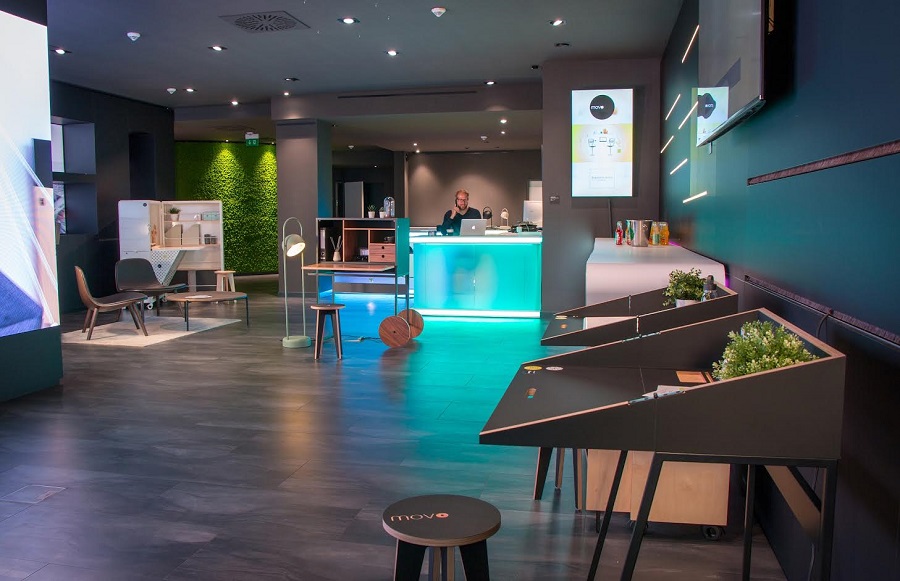
movo mobile work units of the domestic company Sobočan, in just one year have been recognized on the market as an excellent solution for all needs of a functional and optimal workspace and awarded with the most important international awards for design and innovation; German Innovation Award winner 2021, Iconic Awards- Innovative interior 2021 and BIGSEE Wood design award 2021.
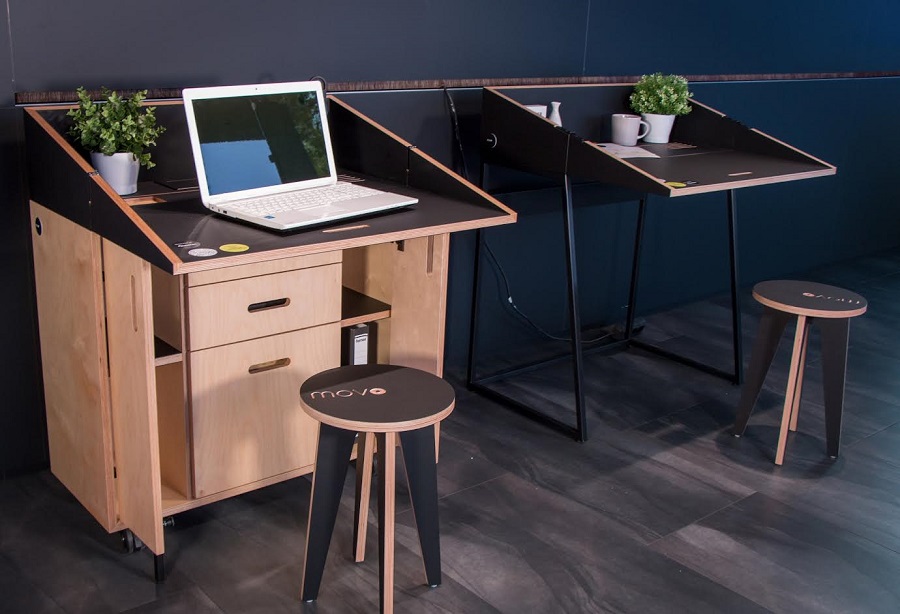
In the movo pop up store in Berlin, until October 30, customers will have the opportunity to see and experience movo models; THE GENIUS, THE REVISIONARY, THE FREE SPIRIT, THE STAR, THE STARLIGHT and THE PERFORMER. Each of them is located in an attractive and modern decorated store area where a seven-meter long LED screen stands out.
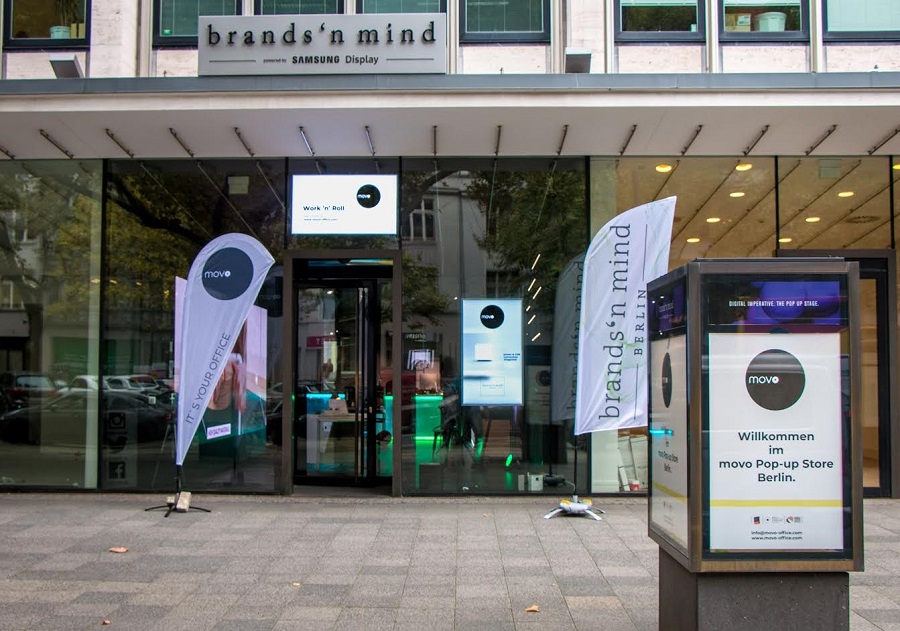
Sobočan says: "Our movo is a product with great export potential, which is important not only for Sobočan, but also for the Croatian economy as a whole. This is confirmed by the great interest of the market and movo is increasingly recognized as an attractive and functional piece of furniture that everyone wants to have in their home or work space. We are proud to be the first Croatian furniture brand with a pop-up store outside Croatia and we believe that our appearance on the German market will bring us new opportunities.”
For more news and features on Croatian businesses here and internationally, follow the dedicated TCN Made in Croatia section.
Croatia's Foreign Entrepreneurs: Simon Neal, from Aberdeen to Rijeka
October 7, 2021 - Continuing our look at the foreign entrepreneurs trying to succeed in Croatia as so many are emigrating, meet Simon Neal who swapped Aberdeen to Rijeka.
Intro
My name is Simon Neal, I am from a small town close to Aberdeen in Scotland. I studied Geology at University and worked for 15 years in the Oil and Gas industry in many places around the world before moving to Croatia in 2013.
After spending a few years in Croatia and enjoying holidays in the campsites here (and struggling to find the information I wanted to see) and I had the idea to create CampMap (https://campmap.com/).A digital interactive map for campsites that makes camping simple for guests and camp managers, it’s like Google Maps and Booking.com for camping.
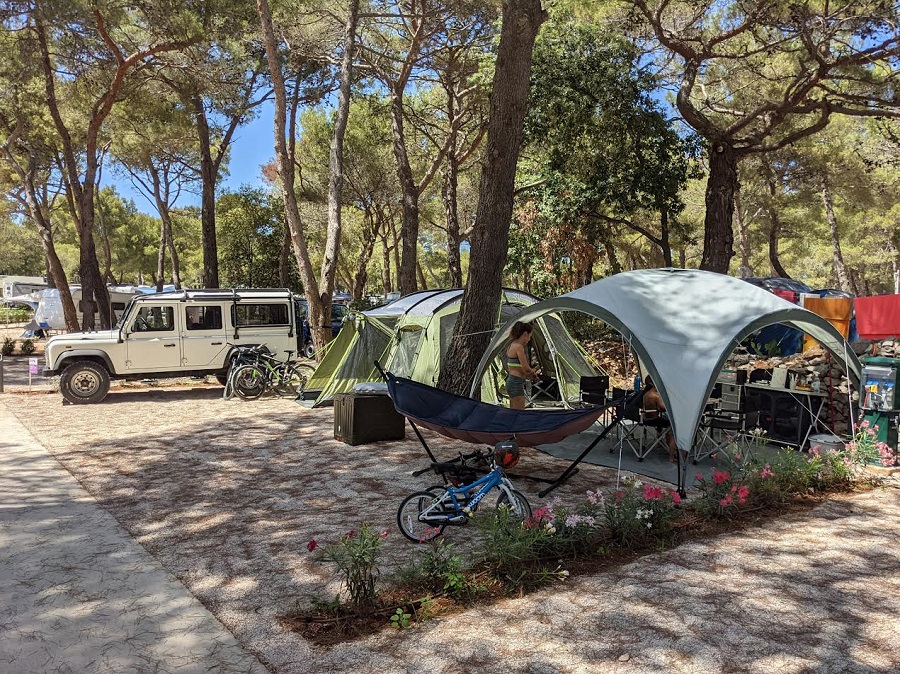
First and foremost, why Croatia and what is it you do?
In 2009 whilst on holiday in Croatia I met my wife Jelena who is from Rijeka. After being together for several years and living in Jordan and the UK we decided to relocate to Croatia for a new adventure.
At the time most of my work was done remotely (an early digital nomad) with quite a bit of international travel. So being in Croatia also allowed Jelena to be close to friends and family when I was away, it then quickly became my new home and a place where I planned to stay for good.
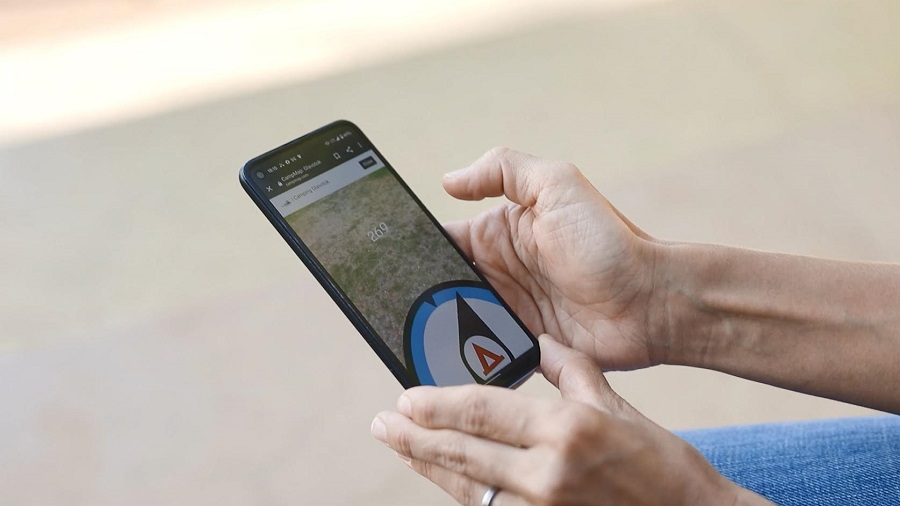
Tell us about some of the differences of your expectations of running a business in Croatia and the reality.
Before setting up a business in Croatia, I had run a business in the UK for a few years, so I had a good understanding of what is required there. In Croatia the reality was a bit different, you are a lot more reliant on other people to get things done e.g. lawyer, accountant, notary, government department. It takes time to get used to that but eventually you understand to the way things need to work and just go with it.
In terms of doing business with people, the culture is very different and something that was completely new to me. For one, I don’t drink coffee, much to my wife’s frustration and I am not a very conversational person so business meetings with potential customers was something that did not come naturally to me.
What (if any) bureaucratical issues have you encountered and how did you overcome them (i.e. any advice to the would-be entrepreneur?)
I’ve opened two companies in Croatia, the first in 2013 and the second in 2019 and there was a huge improvement in the process. My latest company was setup in less than a week including a working bank account and for only minimal costs and paperwork, amazing.
However, there are still plenty of barriers in place that slow down business and make life complicated, it is like there is no trust in the system which is a real shame. My advice is to find a good accountant who is familiar with the type of business you do; you will need them often. And a notary office that is close to where you work because you will need to visit them more than you think.
How is your product or business perceived in the Croatian market?
We are a start-up with a new product trying to help a well-established and successful business community in Croatia, camping. Even though we launched this year, with all the uncertainty around, the perception of the product has been amazing. This is a good sign and shows we are solving some real pain points for camping businesses and guests, but we have a lot of work to do yet.
What were the opinions of your friends and community, were they supportive of your idea, or…?
It’s always a risk when you open a new business, but I was careful to test the idea and secure funding from an investor before committing full time to CampMap, so overall the support and opinions were very positive. Most people who know me also understand that I like to create or build things so creating a start-up is a real fit with my character. Our product is also based heavily on my professional experience which gives people confidence that’s not a totally crazy idea.
What are some of the greatest challenges you have faced in business in Croatia?
With CampMap there have been no big challenges so far, there is the usual bureaucracy, although as I mentioned this is improving. However, a major challenge in the future is how we can grow this business outside of Croatia, the only solution to that now is to move the business legal ownership to another country. This is a real shame but the framework for having investors and customers in Europe or Globally simply doesn’t exist or is too complicated to be practical for a company of our size.
If you knew then, what you know now, would you have come?
The reason for my move to Croatia was not as an entrepreneur but the opportunities in Croatia brought the entrepreneur in me to the surface, so either way, yes, I would definitely have moved to Croatia knowing what I know now.
What are 3 things you love about Croatia?
The first thing is the physical geography, the sea, islands, forests and mountains this is very familiar to me from growing up in Scotland. I love spending time outdoors with my family or competing in trail races in the mountains.
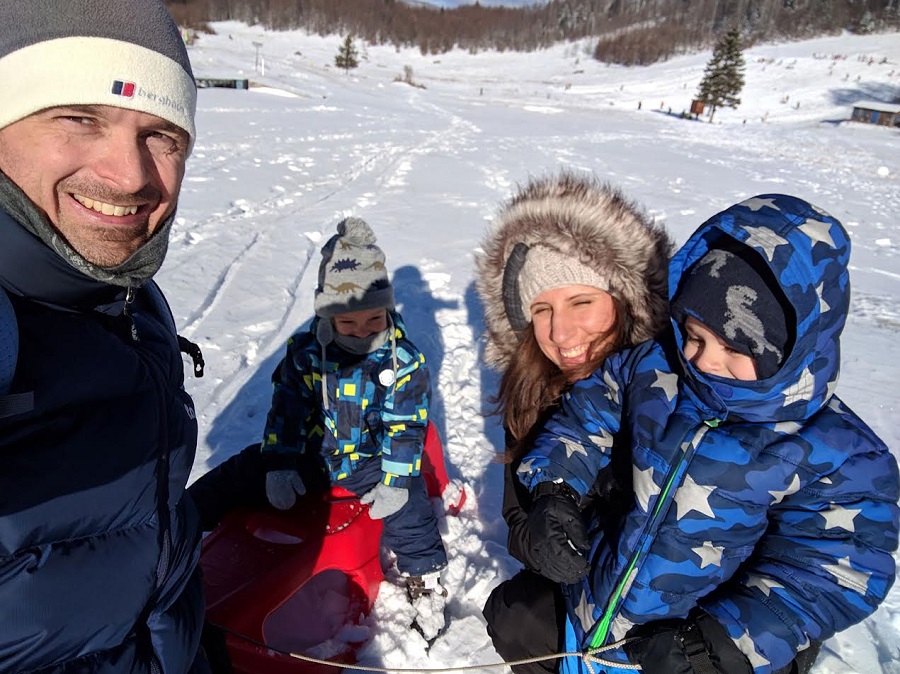
After that it’s the climate, especially here in Rijeka, where the summer is warm and you can enjoy swimming in the sea and spending lots of time outdoors. But the winter is also cold, wet with snow and rain (something that is very familiar to me). It creates a real change in seasons which is sometimes missed in some other countries with warmer climates.
Finally, it has to be the culture which is summarised best by the food and the people, both are amazing. There is nothing better than getting together with family or friends for a big meal or BBQ in the garden.
What are 3 things you would like to see improved in the business climate in Croatia?
If I had been asked this question a few years ago then some of my answers would have been solved already which is a good sign that things are getting better. For what’s left to improve I would say:
Move all possible business services and reporting to be online and digital.
Delegate responsibility of a company to the director completely, removing unnecessary checks and processes.
Copy and implement the simple and flexible investment structure and framework for limited companies (d.o.o.) from countries like the UK and US.
How is it working with Croatians in terms of a business mentality?
My experience has been very positive, certainly within the travel and tourism industry in which we are working. Almost everyone has been open to talk and look at our products and thankfully many of them have been interested to do further business with us.
Advice for foreign entrepreneurs thinking of coming to Croatia?
Do your homework and read some of the sites online about doing business in Croatia, many of the government websites are now also available in English and some steps can be done online.
Don’t be afraid to come to Croatia, especially from within the EU, but make sure you know what it takes to get started. You cannot do it on your own, you are going to need people to help you especially a notary and it would be a good idea to find an accountant before you open the business. Be prepared to wait in queues and sign plenty of documents.
Apart from that, the work life balance and lifestyle in Croatia is great, healthcare, schooling, and nursery for young children are also excellent. If you have a good idea and want an adventure, there are not many better places to be an entrepreneur in Europe than Croatia. There is also a great VC based in Zagreb called Fil Rouge Capital. They are helping develop the start-up ecosystem in Croatia and are always looking for bold entrepreneurs with a big idea.
To learn more about the foreign entrepreneurs trying to make it in The Beautiful Croatia, check out the heroes we have covered already.
Are you a foreign entrepreneur trying to make it work in Croatia and would like to promote your story? Contact us on This email address is being protected from spambots. You need JavaScript enabled to view it.


